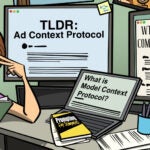When Facebook updates Ads Manager or tests a new ad placement, agencies – and even their account reps – are sometimes the last to know.
In some cases, new features are enabled by default without any overt communication from Facebook, which can be “par for the course,” said Anita Walsh, director of social strategy at Horizon Media.
“A lot of new features are often selected by default at launch,” she said. “It’s a big part of our job to be detail-oriented.”
A lack of meaningful communication sits at the heart of the problem, said James Douglas, SVP and executive director of social media at IPG agency Society.
Although Facebook reps are in daily contact with agencies about the basics, Facebook often buries important updates in voluminous emails that don’t explicitly point out the consequence of changes or how they could affect budget allocation.
It’s an ongoing challenge for Facebook to strike the right cadence between bombarding buyers with too much information about each and every change to Ads Manager and calling out the most important updates to its platform.
But there have been times when Douglas’ team was only made aware of a change to Facebook’s ad offerings by reading about it in the trade press or from a client with questions. Such was the case when Facebook announced that it was testing pre-roll ads in Watch.
Another example: the “Automatic Placements” box in Ads Manager, which allows advertisers to expand placements beyond news feed, including on Instagram. Audience Network placements were quietly included without notice.
“We’ve had clients ask us things like, ‘When did we start buying Instant Articles?’ and we said, ‘Oh goodness, we didn’t even realize we were,’ because now it’s the default,” said Douglas. “It creates an uncomfortable situation.”
Facebook’s automatic opt-ins are a constant point of friction, said Kieley Taylor, head of paid social at GroupM.
Take targeting expansion, a feature Facebook released in 2016 that automatically broadens an advertiser’s interest-based targeting parameters beyond the specified target, if Facebook thinks it can generate better results at a lower cost.
The targeting expansion box in Ads Manager is selected by default for certain marketing objectives, like conversions and app installs, although not for others, including post-engagement campaigns and lead gen.
Taylor only found out about the feature in passing because she’s an avid reader of Facebook’s business blog.
“It’s too big of an assumption to make that we ever want something to be automatically expanded on,” she said. “And even if we want the outcome, having a box ticked by default gives me pause, because I want to understand the drivers behind the outcomes we’re seeing.”
Better Communication
To be fair, the regular tweaks Facebook makes to buying options via Ads Manager are “usually ultimately to the good and necessary for innovation,” Taylor said.
But ad buyers want more heads up when notable changes are in the offing, more transparency into their significance and the ability to test discrete placements, audience selections and other features before they’re included in a default setting.
Given GroupM’s size and how outspoken the agency has been about its desire to be informed about automatic opt-ins, updates are now being communicated “well in advance so we can provide appropriate guidance across all our teams,” Taylor said.
But smaller agencies with fewer resources also have to be kept in the loop.
Facebook and other platforms “need to provide this same level of clarity and notice to all ad buyers,” Taylor said. “Changes should be communicated with notice and allow for current activity to be ‘grandfathered’ in so teams have a window to assess and adapt to changes.”
If Douglas had his druthers, product updates would be shared at least 15 days before they’re released to give the agency time to run tests, get trained and confer with clients.
“If Facebook could pivot to more of a proactive, positive release of information,” Douglas said, “my hope is we won’t be surprised, annoyed or disappointed, but excited and interested in implementing new features.”
Facebook declined to comment on the record for this story.













